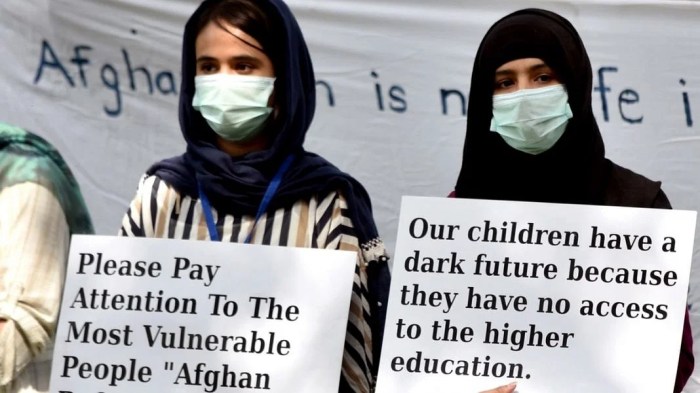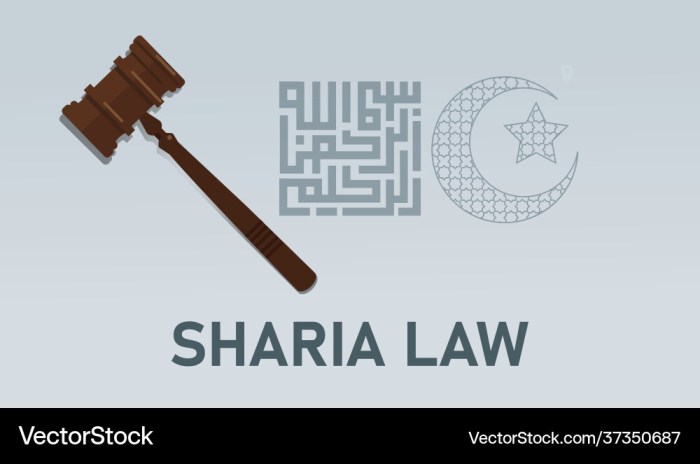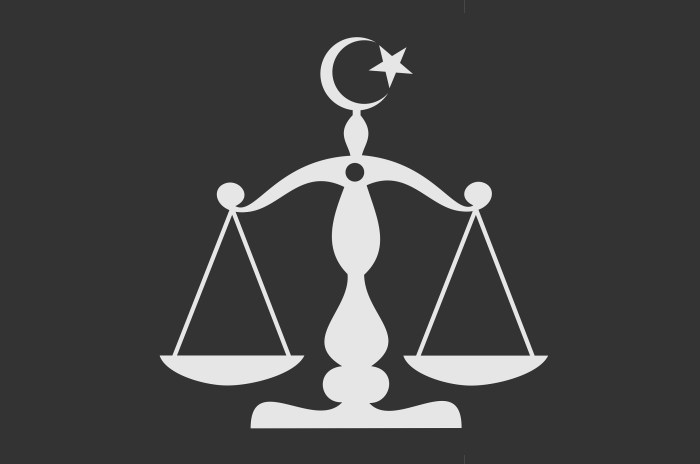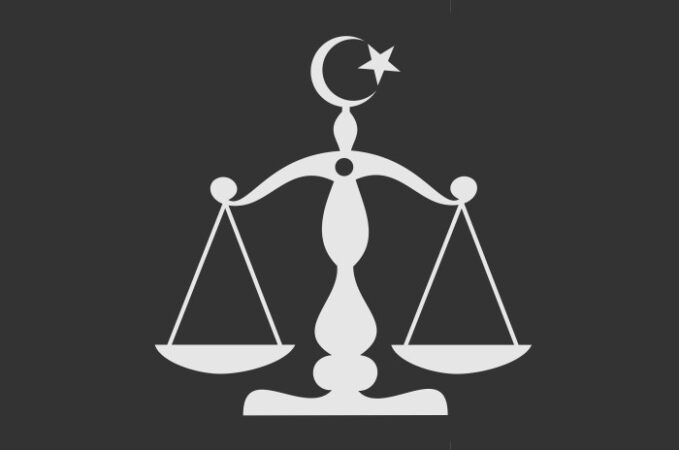
What are Sharia laws? They are a system of Islamic law derived from the Quran and Sunnah, encompassing a wide range of topics from personal matters to social and economic conduct. Sharia law is a complex and multifaceted subject, offering insights into Islamic beliefs and practices.
This guide will explore the origins and foundations of Sharia law, examining its key principles and concepts. We will delve into how Sharia law addresses personal matters such as marriage, divorce, and inheritance, as well as economic and financial issues. Additionally, we will discuss the social and moral guidelines of Sharia law, its contemporary applications, and the ongoing debate surrounding its interpretation in the modern world.
Key Principles and Concepts
Sharia law, derived from the Arabic word “shari’ah” meaning “the way” or “the path,” is a comprehensive legal system that governs the lives of Muslims. It encompasses various aspects of life, including religious practices, social interactions, and legal matters. The core principles of Sharia law are rooted in the Quran and the Sunnah (the teachings and practices of the Prophet Muhammad).
Core Principles of Sharia Law
The core principles of Sharia law are based on the belief that God is the ultimate source of all laws and that humans are obligated to follow His divine guidance. These principles are essential for understanding the underlying philosophy and purpose of Sharia law.
- Justice: Sharia law emphasizes the importance of justice and fairness in all aspects of life. This principle is reflected in the Quranic verse, “O you who believe! Stand out firmly for justice, as witnesses to Allah, even if it be against yourselves, your parents, or your kin, and whether it be against rich or poor: for Allah is over all of them. Follow not the lusts (of your hearts) lest you swerve, and if you distort (justice) or turn away (from it), then Allah is aware of all that you do.” (Quran 4:135) This verse highlights the importance of upholding justice, regardless of personal biases or affiliations.
- Equity: Sharia law promotes equity and equality among all individuals. This principle is based on the belief that all humans are created equal in the eyes of God and should be treated accordingly. The Quran states, “O mankind! We created you from a single (pair) of a male and a female, and made you into nations and tribes, that ye may know each other (not that ye may despise each other). Verily the most honored of you in the sight of Allah is (he who is) the most righteous of you. And Allah has full knowledge and is well acquainted (with all things).” (Quran 49:13) This verse emphasizes the importance of respecting diversity and treating everyone with dignity.
- Pursuit of Good: Sharia law encourages the pursuit of good and the avoidance of evil. This principle is reflected in the Quranic verse, “Say: ‘My Lord has commanded me to be just and upright; and I have been commanded to be the first (to) submit (to Allah) of Muslims.'” (Quran 42:15) This verse highlights the importance of adhering to God’s commandments and striving to live a righteous life.
Categories of Islamic Law
Sharia law categorizes actions into five categories based on their religious permissibility:
- Obligatory (fard): Actions that are considered mandatory and required of all Muslims. These actions are often accompanied by a specific punishment for failure to perform them.
- Recommended (sunnah): Actions that are encouraged but not mandatory. These actions are often based on the Prophet Muhammad’s practices and teachings.
- Permissible (halal): Actions that are allowed and considered neutral. These actions are not specifically encouraged or discouraged.
- Disliked (makruh): Actions that are discouraged but not forbidden. These actions may be considered harmful or undesirable, but they are not considered sins.
- Forbidden (haram): Actions that are strictly prohibited and considered sins. These actions are often accompanied by a specific punishment for their commission.
Hudud (Fixed Punishments)
Hudud refers to fixed punishments prescribed in the Quran and Sunnah for specific crimes against God and society. These punishments are intended to deter crime, protect the rights of individuals, and maintain order in society.
- Examples of Hudud Punishments:
- Zina (adultery/fornication): Stoning for married individuals and 100 lashes for unmarried individuals.
- Qazaf (false accusation of adultery): 80 lashes.
- Theft: Amputation of the right hand for the first offense.
- Drinking alcohol: 80 lashes.
- Conditions for Applying Hudud:
- The crime must be proven beyond a reasonable doubt, with clear and credible evidence.
- The accused must be of sound mind and free will.
- The punishment must be carried out in accordance with the prescribed Islamic procedures.
- Interpretation and Application of Hudud:
- The interpretation and application of Hudud punishments are subject to debate and scholarly discussion among Islamic jurists. Different schools of thought within Islam may have varying interpretations and interpretations of these punishments.
- In contemporary times, there is a growing debate about the relevance and applicability of Hudud punishments in modern societies.
Personal Matters and Family Law

Sharia law encompasses a comprehensive framework governing personal matters and family relationships, including marriage, divorce, inheritance, and child custody. These regulations are based on the Quran and Sunnah, aiming to establish a just and equitable society.
Marriage
Marriage in Islam is considered a sacred contract between a man and a woman, with the intention of establishing a stable and harmonious family unit.
- The process typically involves a proposal (khitbah), followed by a formal agreement (nikah) witnessed by two adult Muslim males.
- A dowry (mahr) is a financial gift from the groom to the bride, symbolizing his commitment and ensuring her financial security.
- Polygamy, though permitted under certain conditions, is generally discouraged and requires the consent of the first wife and the ability to provide equal treatment and financial support to all wives.
Divorce
Divorce, while discouraged, is permitted in Islam as a last resort.
- The process typically involves a period of reconciliation (iddat) during which the couple can attempt to resolve their differences.
- If reconciliation fails, a formal divorce (talaq) can be initiated by the husband, with certain conditions and procedures to be followed.
- In some cases, the wife may be able to initiate divorce proceedings (khula) under specific circumstances.
Inheritance
Sharia law Artikels specific rules regarding inheritance, ensuring a fair distribution of property among heirs.
- The Quran specifies the shares allocated to different family members, including spouses, children, parents, siblings, and other relatives.
- Males typically receive twice the share of females, reflecting the responsibilities associated with providing for the family.
- The deceased’s will (wasiyyah) can modify the inheritance distribution within certain limits.
Child Custody
The welfare and upbringing of children are paramount in Islamic law.
- In cases of divorce, custody (hadhanah) is usually granted to the mother until the child reaches a certain age (typically 7-10 years old).
- The father has the right to visit and maintain contact with the child, while the mother is responsible for their care and upbringing.
- Islamic courts consider the best interests of the child when making custody decisions, taking into account factors such as age, gender, and emotional well-being.
Polygamy
Sharia law permits polygamy, but only under specific conditions and with strict guidelines.
- The husband must be able to provide equal treatment and financial support to all wives.
- The first wife must consent to the marriage.
- The husband must demonstrate fairness and justice in his dealings with all wives.
Premarital Relationships
Premarital relationships are strictly prohibited in Islam, as they are considered immoral and harmful to both individuals and society.
- Sharia law emphasizes the importance of preserving chastity and avoiding sexual relationships outside of marriage.
- Premarital relationships can lead to emotional distress, social stigma, and the potential for unplanned pregnancies.
Family Planning
Family planning is a personal matter, and Sharia law does not explicitly prohibit or encourage specific methods.
- However, Islam emphasizes the importance of responsible parenthood and planning for the well-being of children.
- Methods of family planning should be ethical and morally acceptable, respecting the sanctity of life and the purpose of marriage.
Islamic Courts and Arbitration
Islamic courts play a crucial role in resolving family disputes, ensuring that rulings are based on Sharia principles.
- These courts provide a platform for couples to resolve issues related to marriage, divorce, custody, and inheritance.
- Arbitration is often encouraged as a means of resolving disputes amicably, with both parties agreeing to a mutually acceptable solution.
- Islamic scholars and judges are trained to interpret Sharia law and apply its principles to specific cases, striving for fairness and justice.
Economic and Financial Matters

Sharia law provides a comprehensive framework for economic and financial transactions, emphasizing ethical and just practices. It aims to create a balanced and sustainable economic system that promotes social welfare and discourages exploitation.
Interest-Free Banking and Ethical Investment
Sharia-compliant financial institutions operate on the principles of risk-sharing and profit-sharing, prohibiting the charging or receiving of interest (riba). This approach is based on the belief that interest leads to exploitation and economic inequality. Instead, Islamic banks engage in activities like trade financing, leasing, and investment in real assets, where profits and losses are shared between the bank and its customers.
Ethical investment is another crucial aspect of Islamic finance. Sharia-compliant investments are screened to ensure they align with Islamic values, excluding businesses involved in activities such as gambling, alcohol, pornography, and weapons manufacturing. This focus on ethical investment aims to create a positive impact on society and the environment.
Contracts, Property Ownership, and Charitable Giving
Sharia law places great emphasis on contracts, requiring them to be clear, fair, and based on mutual consent. Contracts must be in writing and witnessed to ensure accountability and prevent disputes. The principles of justice and equity guide the rules regarding property ownership, emphasizing the importance of inheritance rights, fair distribution of wealth, and protection against exploitation.
Charitable giving (zakat) is a pillar of Islam, and Sharia law Artikels specific rules for its distribution. Zakat is a form of wealth tax that is obligatory for Muslims who meet certain criteria. It is collected and distributed to the poor, needy, and other deserving recipients, aiming to alleviate poverty and promote social justice.
Comparison with Conventional Economic Models
The Islamic economic system differs significantly from conventional economic models in its emphasis on ethical considerations, social justice, and wealth distribution. While conventional models prioritize individual profit maximization and free market principles, Sharia law seeks to create a more balanced and equitable system that benefits society as a whole.
One key difference lies in the concept of interest. Conventional economic systems rely heavily on interest-based lending, while Islamic finance prohibits it. This distinction reflects different philosophies about the role of money and the relationship between borrowers and lenders. Islamic finance aims to promote shared risk and reward, encouraging responsible investment and discouraging speculation.
Another difference lies in the role of government. Sharia law recognizes the importance of government intervention to ensure fairness and justice in the economic system. It emphasizes the need for regulations to prevent exploitation and promote ethical business practices.
Overall, the Islamic economic system presents a distinct approach to economic matters, focusing on ethical principles, social justice, and the well-being of the community. It provides a framework for financial transactions and investment that aims to create a more equitable and sustainable economic environment.
Social and Moral Conduct: What Are Sharia Laws
Sharia law provides comprehensive guidelines for social and moral conduct, encompassing various aspects of life, from personal interactions to societal norms. These guidelines aim to foster a just and harmonious society based on Islamic principles.
Dress and Modesty
Islam emphasizes modesty in dress for both men and women. The Quran instructs women to cover their bodies, including their hair and chest, except for their faces and hands. This principle is interpreted differently across cultures and societies, but the underlying emphasis on modesty remains.
Dietary Restrictions
Sharia law Artikels specific dietary restrictions known as Halal, meaning “lawful” or “permitted.” Halal food includes meat from animals slaughtered according to Islamic rituals, as well as fruits, vegetables, and grains. Prohibited foods, known as Haram, include pork, blood, and animals that have not been slaughtered according to Islamic guidelines.
Social Interactions
Sharia law promotes ethical conduct in social interactions, emphasizing respect, honesty, and kindness. It encourages Muslims to be truthful, fulfill their promises, and avoid backbiting and gossip. The concept of “adab,” meaning good manners and etiquette, plays a significant role in guiding social behavior.
Crime and Punishment
Islam recognizes the importance of justice and the need for a system of punishment for crimes. Sharia law defines specific punishments for offenses such as theft, adultery, and murder. These punishments aim to deter crime, protect society, and uphold justice. The role of the state is to enforce these laws and ensure the safety and security of its citizens.
Education and Moral Development, What are sharia laws
Education and knowledge are highly valued in Islam. The Quran emphasizes the importance of seeking knowledge and understanding. Sharia law encourages Muslims to pursue education, both religious and secular, to develop their intellectual and moral capabilities. Moral development is seen as an ongoing process, guided by Islamic principles and the pursuit of good character.
Contemporary Applications and Interpretations

The application of Sharia law in a modern, multicultural world presents both challenges and opportunities. As societies become increasingly diverse, understanding and navigating the intersection of Islamic principles with contemporary legal frameworks and social values is crucial. This section examines various interpretations of Sharia law in the modern context and the role of Islamic scholars in adapting these principles to contemporary issues.
Contemporary Interpretations of Sharia Law
Contemporary interpretations of Sharia law reflect the diverse social, political, and cultural contexts in which Muslims live. These interpretations often differ in their emphasis on specific principles and their application to contemporary issues.
- Traditionalist Interpretations: These interpretations tend to emphasize a strict adherence to classical Islamic legal texts and the rulings of early Islamic scholars. They often prioritize the preservation of traditional values and practices.
- Modernist Interpretations: Modernist interpretations seek to reinterpret Islamic principles in light of contemporary social and political realities. They often emphasize the need for flexibility and adaptation to address modern challenges, such as human rights, gender equality, and technological advancements.
- Liberal Interpretations: Liberal interpretations prioritize individual autonomy and human rights. They often advocate for a more inclusive and egalitarian understanding of Islam, emphasizing the importance of reason, critical thinking, and social justice.
The Role of Islamic Scholars and Jurists
Islamic scholars and jurists play a crucial role in interpreting and adapting Sharia law to contemporary issues. They use their knowledge of Islamic texts and legal principles to address modern challenges, such as:
- Bioethics: Issues related to genetic engineering, stem cell research, and end-of-life care.
- Finance: Developing ethical guidelines for Islamic finance, including issues related to interest, speculation, and risk.
- Technology: Addressing the ethical implications of new technologies, such as artificial intelligence, social media, and cyber security.
- Environmental Issues: Developing principles for sustainable development and environmental stewardship.
Challenges and Opportunities
Applying Sharia law in a modern, multicultural world presents both challenges and opportunities.
- Reconciling Sharia Law with Secular Law: One of the primary challenges is reconciling Sharia law with the legal frameworks of secular states. This often involves finding ways to integrate Islamic principles into existing legal systems or establishing separate legal systems for Muslims.
- Promoting Interfaith Dialogue: Understanding and respecting the values and beliefs of other religious groups is essential for fostering harmonious relationships in multicultural societies.
- Addressing Contemporary Issues: Sharia law must be interpreted and applied in a way that addresses the unique challenges of the modern world, such as globalization, technological advancements, and environmental degradation.
- Promoting Social Justice: Sharia law can be a powerful tool for promoting social justice and equality, but it must be interpreted and applied in a way that upholds the rights and dignity of all individuals.
Wrap-Up
Understanding Sharia law requires an open mind and a willingness to explore different perspectives. While there are varying interpretations of Sharia law, its core principles emphasize justice, equity, and the pursuit of good. It is crucial to approach this topic with respect and sensitivity, recognizing the diverse ways in which Muslims understand and practice their faith.
Common Queries
What is the difference between Sharia law and Islamic law?
Sharia law is a broad term that encompasses the entirety of Islamic law, while Islamic law refers to specific legal rulings or interpretations within Sharia.
Is Sharia law the same in all Muslim-majority countries?
No, the application and interpretation of Sharia law can vary widely depending on the country, its legal system, and cultural context.
How does Sharia law apply to non-Muslims?
Sharia law primarily governs the lives of Muslims, but in some cases, it may impact non-Muslims living in Muslim-majority countries, particularly in matters related to personal status or family law.
Is Sharia law compatible with modern society?
This is a complex and ongoing debate. Some argue that Sharia law is outdated and incompatible with modern values, while others believe it can be adapted and interpreted to address contemporary issues.





